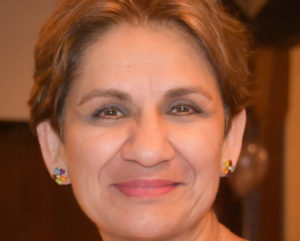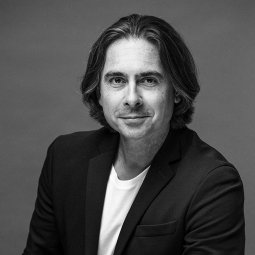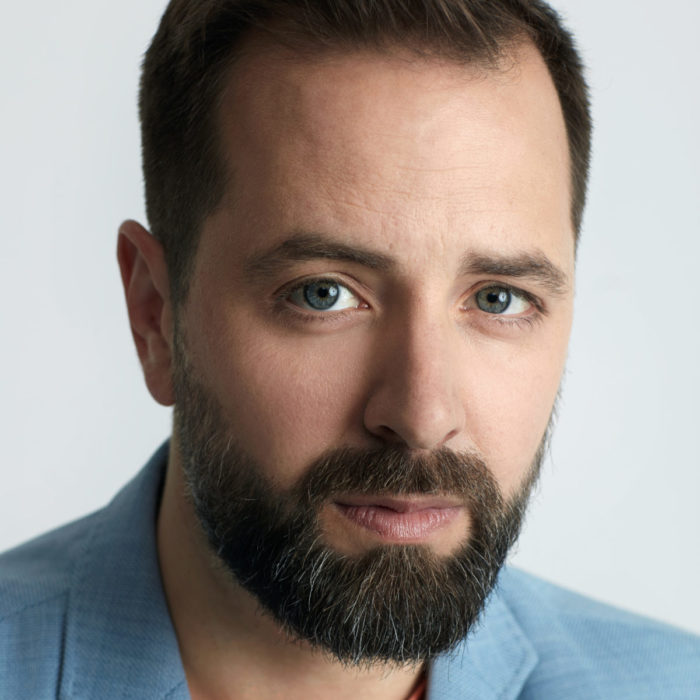
Q&A: Neeta Helms on Classical Movements & The Prague Summer Nights Festival
By Francisco SalazarNeeta Helms is the founder and owner of Classical Movements, a premiere concert tour company for the world’s great orchestras and choirs, creating meaningful cultural experiences through music in 145 countries.
During her 25 years with Classical Movements, Helms has worked with some of the most prestigious orchestras and concert artists in the world. She has traveled to 80 countries and has worked on some of the most complicated, difficult and pioneering projects in the music world.
After many years focused on touring, Classical Movements founded the Prague Summer Nights Festival to help young artists build their profile and gain exposure in the opera world. Now in its third year, Prague Summer Nights continues to grow, with the festival set to expand to Salzburg this summer. OperaWire had the chance to speak with Neeta about the development of the program and about the major challenges of putting on a festival like this one.
OperaWire: Tell me about your role with Classical Movements and the work you’ve done with classical music and opera?
Neeta Helms: I am the President and founder of Classical Movements, which is now 25 years old. We are the premiere concert touring company for orchestras and choirs, so our focus has primarily been arranging tours and concerts. We work in 145 countries and have worked in the Czech Republic for a very long time. Since we have been business, we have organized four choral festivals; we started our first in the Czech Republic 10 years after the company was founded in 1992, then started festivals in South America, Washington DC and South Africa. We work with professional orchestras, as well as conservatories, youth symphonies and choral ensembles to arrange their tours. We’re uniquely placed in the world of classical music and we have a foothold in the worlds of both choral and orchestral music.Incidentally, our involvement in the opera world began as early as 1998 when we toured with the Pittsburgh Symphony and Andrea Bocelli; we have also arranged tours for Dmitri Hvorostovsky including his 45-day tour and with Renée Fleming.
OW: Why did you start Prague Summer Nights?
NH: It came into being because one of our clients, the University of Kentucky, has a very rich music department and had spoken about collaborating on a summer program, which they would plan. They were going to organize auditions and everything. We would arrange the production and all the housing, travel, sets and costumes, but it was going to be their program, not ours. Something fell through with the university, but we were very close to the conductor John Nardolillo, who dreamed of still doing it. After investing so much into we decided, ‘Why not do it ourselves?’ We felt very well placed because we were financially strong and could invest the necessary time and the source. One has to make sure you have everything you need a year in advance. And then you have to engage faculty and when you engage someone like Sherrill Milnes, who is such a giant in the industry, you have to plan to do everything in the best way possible. I never wanted it to be a small program. There is nothing wrong with that, but if we were going into this with our level experience, I really wanted it to be international and felt that we could do that better than anyone else. We were engaged many years ago to do the YouTube Symphony Orchestra; it was a crazy program and one of the things that attracted them to us was that they knew we were able to get the word out all around. And that is something that we brought to this program, as well. We also wanted high-level faculty; together with John Nadalillo, our artistic director, we made an effort to get fabulous faculty, not just from the United States, but from Europe as well. And that has been a major goal of ours. We also have established distinct opera and orchestra programs.
OW: How has the program evolved?
NH: The first year, we were dominated by our opera program. We engaged very famous people from the opera world. We did “Don Giovanni,” and then added “Suor Angelica;” we had so many women applicants that we didn’t want to turn any away. The second year, we added “Gianni Schicchi” and really started to build up the instrumental program as well. We felt that while the orchestra plays with the opera, we wanted to really build it up on its own. This year we’ve gone from “Suor Angelica” to “Gianni Schicchi” to two major operas, “The Magic Flute” and “Le Nozze di Figaro.” We’ve also added Salzburg to the program.
OW: How did that move to Salzburg come about?
NH: Salzburg came about because of the obvious Mozart connection, but it’s also an opera-loving city and therefore a great addition for the people who are performing, a really valuable experience for our performers and our faculty. Everyone was really attracted by the prospect. We’ll be performing at the famous Mozarteum Hall, where we will do “Magic Flute” and “Le Nozze di Figaro.”
OW: Tell me a little about the program?
NH: We started out 30 days in Prague and then in our second year, we spent 11 days in this lovely town called Tabor in Bohemia before going to Prague for 19 days. It was a very fine balance. The whole town was so interested in our program. We have long hours and long days, between coachings and staging rehearsals; everybody has things going on. We have so much happening and the town is in love with the idea of music being done in the summer. We start there and then we go to Prague. This year, because the Estate Theater is completely under repair, we will be at the second home of the Prague Symphony instead. It’s a beautiful venue, where we will stage all our productions, but we also wanted to perform at a prestigious hall, so that is why Salzburg was important. Where we will go in our fourth year, we shall see – but Salzburg is turning out to be a major attraction. We have also partnered with the Prague Conservatory, which is a legendary institution.
OW: Tell me about the audition process and what is it like?
NH: That process happens both in-person and online. We hold auditions in several cities twice: we have a round of auditions in early November in London, Beijing, Los Angeles, New York, Maryland, Washington and so on. And then we repeat those and add some other locations like Indiana, so we get a lot of people from all over the country. We do these auditions in January and February. We also do online auditions for applicants around the world. Then all the major conductors, faculty and stage directors check them out and based on their consensus, we make offers.
OW: Do any of the participants come back?
NH: Yes, that is actually something I want to highlight. One of our alumni, John Holland, did Masetto the first year and then Leporello the second year. And this year, he is going to sing Figaro. He comes back because he says this program has helped him out so much; he’s got roles and it’s really building his career. Our first year, we also had Marcello Ferrero, who came back in our second year. The chance to work with Sherrill Milnes in Europe, in these productions is obviously a huge draw. We are attracting a very high level of singing and that is helping these musicians’ careers.
OW: Tell me about working with Sherrill Milnes and his work with the festival?
NH: We’re really blessed to have him with us directing “Le Nozze di Figaro.” You know, he made his stage director debut with the Prague Summer Nights Festival program. It was major news in Europe and the press was all over it.
OW: What kinds of productions are produced?
NH: Very classic, all done the way they were meant to be done. We’re not at all avant-garde. We want to give people a chance to experience opera in the classical sense and really get them ready for these roles in their careers. Our goal is to give productions as close to the original as possible.
OW: How has the audience reacted during the first two years?
NH: Our audience tends to be half tourists and half local opera-lovers. We do a lot of promotion and so far we have had a lot of interest from the press, including coverage from the major opera press. That obviously reaches everybody in Prague and now Tabor. The tourists like to come to the Estate Theater because it’s so important to Prague. They just love the idea of seeing something in this opera house. There is a lot of word of mouth and the reviews have been good as well, so people know that the production is satisfying. We’ve had huge ovations from our audiences and have had packed halls. Our goal is to engage the locals – and if we get tourists, that is great too. But it is really exciting to see people discover opera through our festival.
For more information on Prague Summer Nights, please visit: www.praguesummernights.


